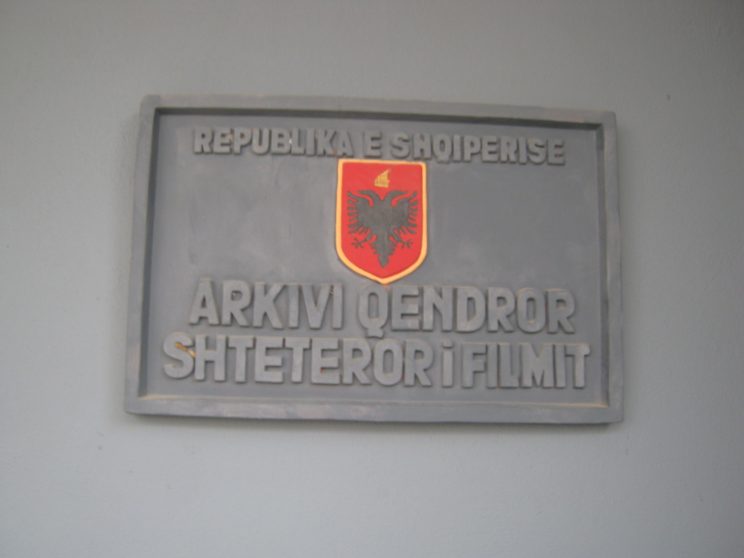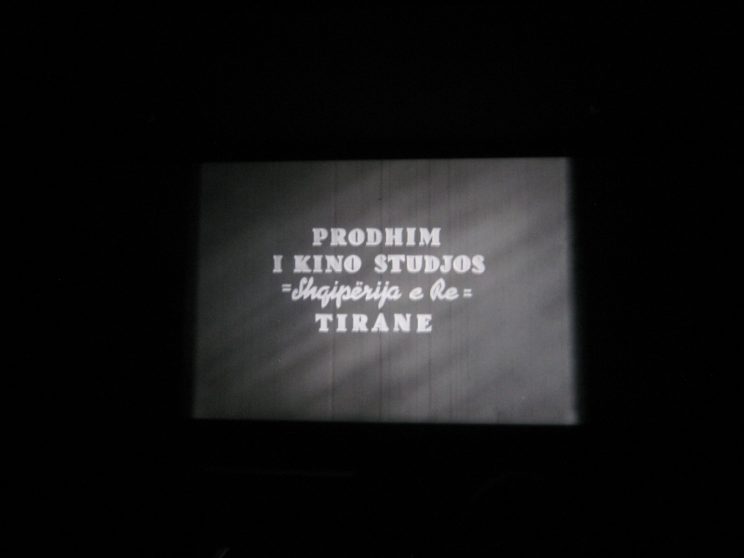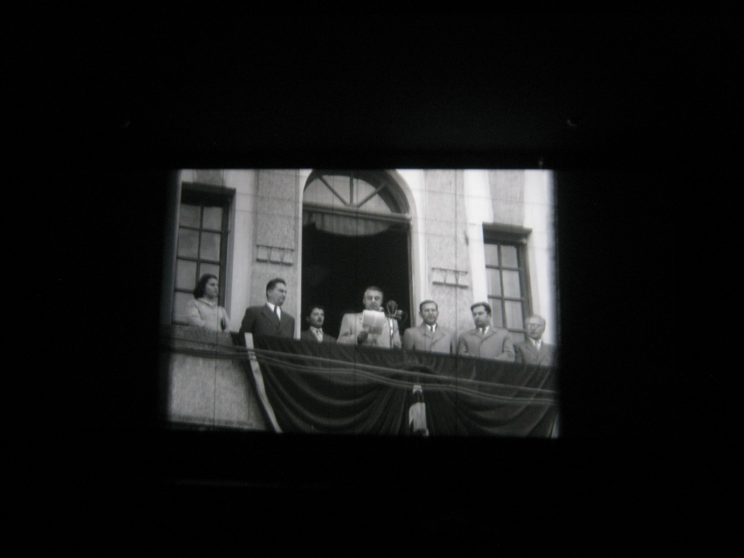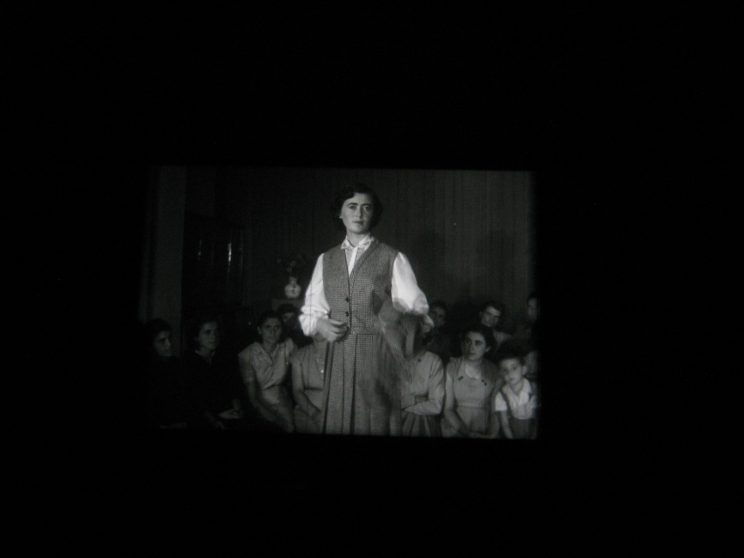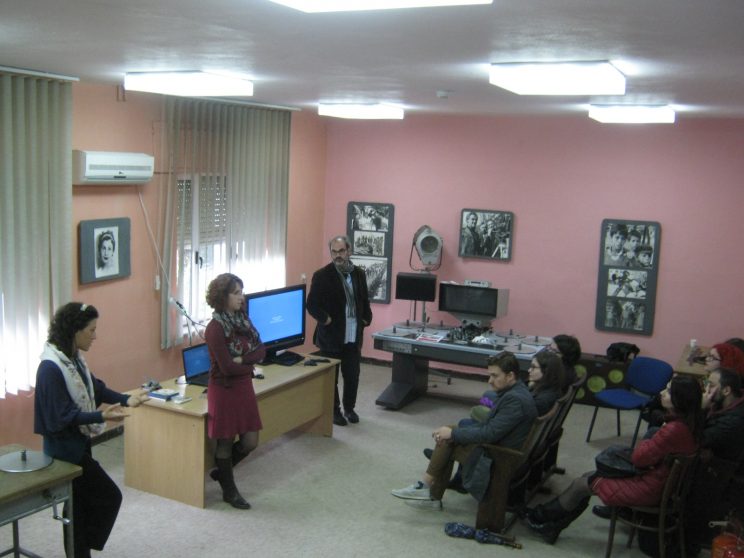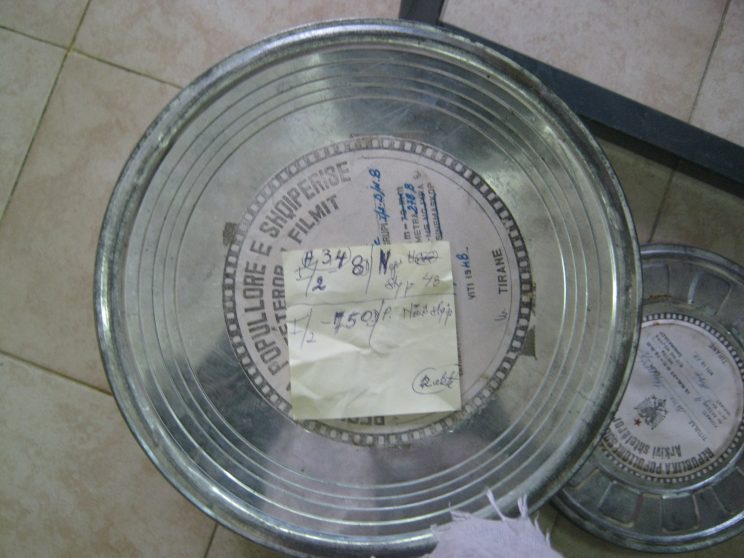I had two things on my mind while heading up to Tirana, the last stop of our cinematic journey: that I would be glad to visit the Albanian film archive which lately became popular in the film preservation circles because of the widely promoted Albanian Cinema Project; and that I wanted to catch up with films from Albania and Kosovo as these are extremely difficult to be seen outside of the region. Both of my wishes came true and the organizers had even a further surprise for us – we had a private screening of an Albanian propaganda newsreel from the 50s featuring Enver Hoxha, propaganda slogans and a catwalk show demonstrating the fashion style of the period.
Then we were invited on a tour around the building led by the archivist Eriona Kita Vyshka followed by a presentation of the Albanian Cinema Project by its initiators Iris Elezi and Thomas Logoreci. Iris and Thomas shared in details the challenges they experienced while launching the project and the current issues that occur in the continuous process of raising awareness regarding the preservation of film heritage in Albania and the Balkans in general. The next day they also presented a concise lecture on Albanian film history supported by film excerpts which filled many gaps in my knowledge on the subject and opened my perspective towards current tendencies.
Regarding contemporary film production, I did not have the chance to watch a new Albanian feature film but we all managed for the screening of the low budget minimalist drama from Kosovo Home Sweet Home by Faton Bajraktari at the Tirana Film Festival. Although the overall production level is not very high in terms of acting and script development, I find the idea very original and it serves as a tool to discuss the subject of external political influences over small nations which in the European context is especially relevant for the Balkans.
The main character of Home Sweet Home is a man who returns to home unexpectedly after an absence of four years during which he was considered killed in the Kosovo war. His return, however, seems to complicate the lives of his relatives, who are currently enjoying a number of privileges because of his heroic death. His wife, who seems to have benefited most from his death, presides now in a support committee for war victims, while his children receive preferential treatment at school. It is an inappropriate moment for his best friend from the battlefield too, since he is about to inaugurate a school after his name with funds coming from a foreign organization. With the only support of his little daughter who is photographing him daily with the polaroid camera is if she is afraid that he might disappear again, the man is forced to remain officially dead and locked in his own house which from a dreamed shelter converts into a bleak prison.
With evident ironic comment which lurks even from the film title, Faton Bajraktari attempts to capture the prevailing mood in both political life and human relationships in the post-war Kosovo, a country build up on compromises and charities by NGOs with disputable goals. The action is limited to the interiors of the house and while some symbolic shots reflect the stagnation of the main character and of the overall situation in which he is trapped. It is a metaphor for the suffocating environment that is so typical for societies in such a dependent state. An atmosphere of lethargy and inactivity so typical for this region.
I perceived is as a message which came just on time for the wrap up of our Balkan Cine Caravan – although the Balkans are maybe the most distinctive European area thus completely unique, it is too much under unifying influence. Therefore, there is a lot to improve.

